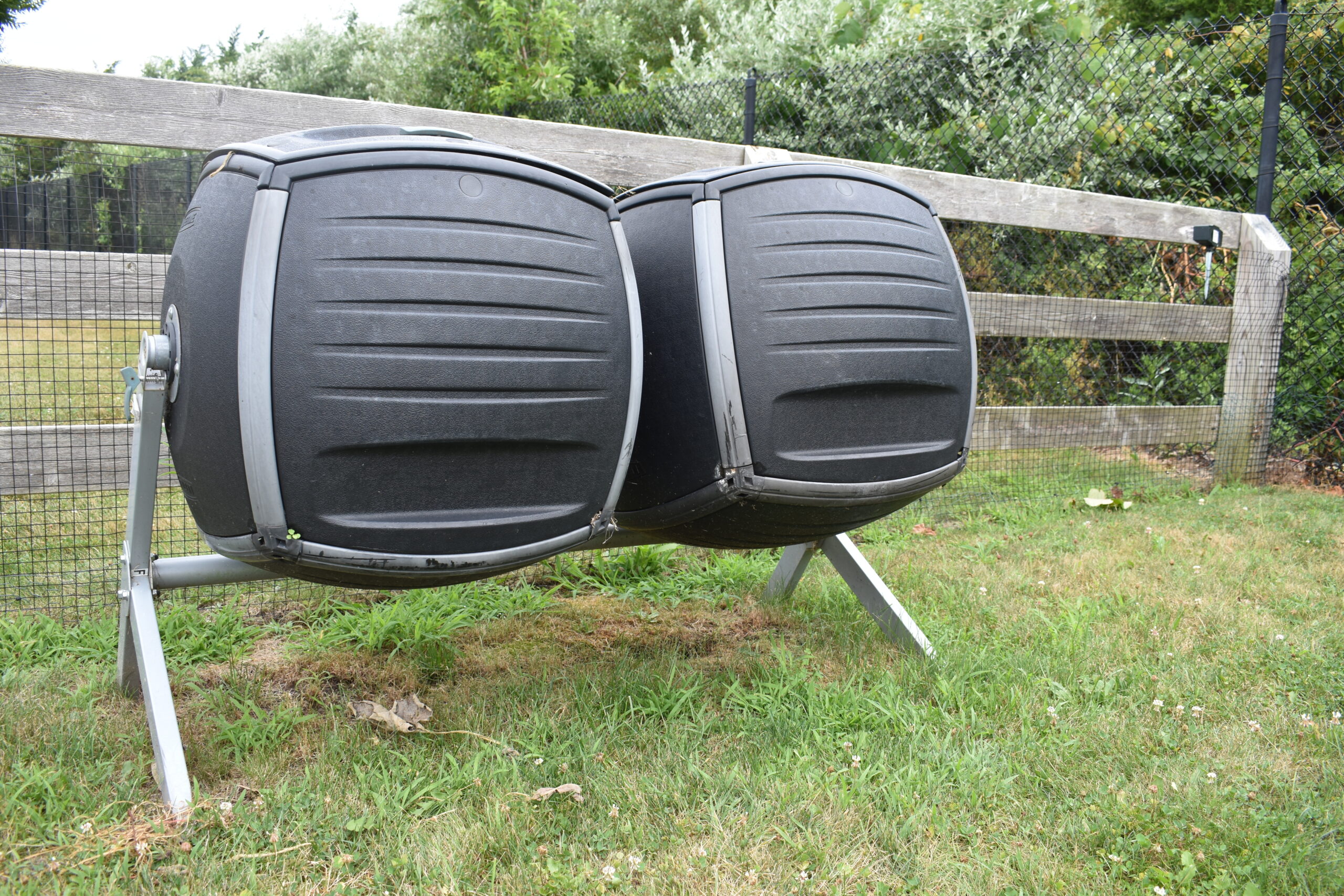
I’m stoked about my compost after growing over 1,000 tomatoes, eight dozen squash and zucchini, lots of kale, 24 garlic and 10 butternut squash in 2022.
Freshly made, home-grown compost works as well as the fertilizers or soil additives that I had bought in the past. This year I did not buy any. My compost doesn’t even smell, and it’s loaded with worms — two species. I don’t know where they come from.
I put vegetable and fruit scraps, grass clippings, herbs and water into a black, plastic barrel and rotate it weekly. After many weeks, when the compost is mostly black, I shovel it into a wheelbarrow and mix it into the garden soil. If it’s not fully cooked (composted), I will bury it in a 10-inch-deep hole. A post-hole digger makes easy work for depositing composted or partially composted material. It will further compost in the ground while sending up nutrients. Vegetables and flowers on top grow like wildfire. My compost is nutrient-rich; 6-inch vegetable sprouts grow in the barrel if I don’t rotate it weekly.
For the best compost, vegetable skin and orange and tangerine peels should be cut into 1-inch pieces. Bananas, carrots, corn, onions: Add the ends, skins, peels, husks and cobs to the compost bin. Mix in egg shells, grass clippings, herbs, mint leaves, tea leaves, coffee filters and coffee grounds — coffee grounds can also be put directly into the garden beds to repel cats and to fertilize plants. Always add water.
Since I grow lots of flowers, I compost gladiola, marigold and zinnia flowers, but not the hard stems.
A quick composting method for small gardens and houseplants: Put water, vegetable and fruit scraps, egg shells, flowers and leftover coffee and juice into a blender* and spin it for a few seconds; then pour the mixture around the base of your plants. Also, put some in the hole before planting bulbs.
To keep weeds down around my vegetables and flowers, I use mulch from the Hampton Bays transfer station. The mulch also makes the garden look neat. Mulch is free for Southampton Town residents.
Gardener’s Supply Company has a big selection of composting containers online, many sizes, various prices. Amazon sells a small, single chamber, 27.7-gallon, Miracle-Gro tumbler for $79.90. That one would be my choice. It has a large opening and is easy to rotate. They also have larger ones and dual-chamber models.
When the drum is full, tumble it but don’t add material for two to four weeks. New material is kept in a 5-gallon paint bucket. When the scraps are fully cooked (composted), take out 75 percent for the garden. Add the new material. The 25 percent that is left will help the new material start cooking. Keep the barrel in the sun, add water and tumble weekly.
From my experience, the drum method composts faster than in open cages. It holds in heat and is easier to rotate the compost than by turning it with a pitchfork. The drums are not cheap, but, over a few years, they pay off with increased vegetables/flowers production and money saved from not buying fertilizer or accelerator.
To really save money and go green: Repurpose. You can build your own compost container out of scrap lumber, plastic or sheet metal. Build a box with a hinged door. It might not be round for rotating the compost but even if it’s square, with a bit more effort, you can “roll” it weekly. Or, use an old 55-gallon drum with holes in it or use a regular garbage can. Drill holes in the bottom and sides, tie the cover on and roll. Minimum size 30 gallons.
Not all composting material is available to everyone. A rich compost that I used to make when I had chickens: chicken litter, saw dust and fresh-cut grass clippings. (I wouldn’t go out and buy chickens, although the eggs were pretty good.) Green, still wet, seaweed works well too, and it’s plentiful.
For more tips, email jim@longislandpaddling.com.